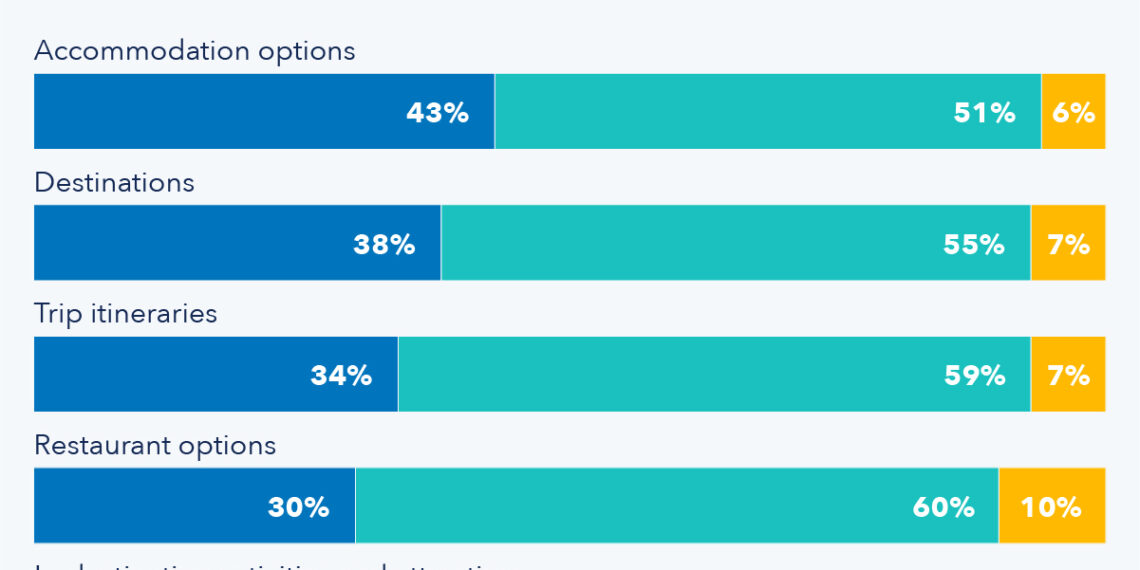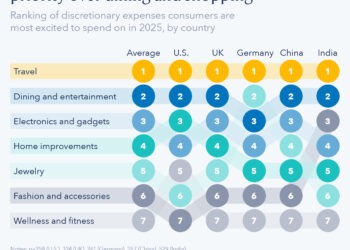The Growing Influence of AI in the Travel Booking Process
As technology continues to evolve, artificial intelligence (AI) is becoming an integral part of many industries, including travel. A recent study by Deloitte highlights a compelling trend: a significant number of travelers are acting on AI-generated tips when it comes to booking their trips. This blog explores the implications of this trend, breaking down how AI impacts travel planning and booking behaviors.
Understanding the Role of AI in Travel
AI technologies are being utilized in various ways within the travel industry. From personalized recommendations to streamlined booking processes, AI is helping travelers make informed decisions quickly and efficiently. As a result, a newer form of decision-making is observed—many travelers are now willing to book accommodations and activities directly based on the suggestions provided by AI systems.
AI Systems: How They Operate
These AI systems analyze vast amounts of data to generate insights that cater to individual preferences. They take into account a user’s past travel behavior, preferences, and even real-time conditions to provide tailored recommendations that can enhance the travel experience. This not only saves time but also helps users discover options they might not have considered otherwise.
Booking Trends Based on AI Recommendations
According to the Deloitte study, at least one-third of respondents reported proceeding with AI recommendations for travel bookings. This statistic underlines an essential shift in how travelers approach planning their trips.
Accommodation Recommendations
The study revealed that accommodation bookings are often made with minimal additional research after receiving AI-generated suggestions. This indicates a growing trust in AI systems to provide reliable and relevant options for travelers, streamlining the booking process significantly. Travelers might appreciate the convenience of selecting a place to stay based on personalized recommendations, allowing them to spend less time searching through countless listings.
Dining and Activity Choices
In contrast to accommodation bookings, dining and activity suggestions appear to prompt more thorough research among travelers. This difference can be attributed to the nature of these experiences—travelers may want to explore menus, read reviews, or consider location factors before making dining or entertainment decisions. As such, while AI influences initial suggestions, many users still prefer to validate those options through additional resources before committing.
Trust in Technology: A Double-Edged Sword
While travelers are increasingly relying on AI-generated recommendations, it raises questions about the implications of such trust in technology. The convenience offered by AI systems can enhance the travel experience, but it also necessitates a level of caution.
Balancing AI Usage with Human Input
Travelers must balance AI suggestions with their own intuition and preferences. The best outcomes often come from blending AI insights with personal research. This behavior not only empowers travelers but also encourages them to engage more deeply with their travel plans.
Future Implications for the Travel Industry
The impact of AI on travel booking is still unfolding. As AI technologies continue to advance, the potential for even more sophisticated recommendations and interactions with travelers grows. For travel companies, adapting to these changes will be key to staying relevant and competitive in a rapidly evolving market.
Opportunities for Travel Companies
With the rise of AI in the travel sector, companies have a unique opportunity to enhance their services. By integrating AI tools effectively, travel companies can provide hyper-personalized experiences that cater to the needs of their customers. In addition, leveraging data analytics can help companies anticipate trends and consumer behavior, leading to better service delivery and customer satisfaction.
By understanding and adapting to the growing role of AI in travel booking, both travelers and industry professionals can navigate this changing landscape more effectively, ultimately leading to better travel experiences across the board.
Key Findings from the Deloitte Study
- One-third of travelers are booking based on AI recommendations.
- Accommodation bookings are frequently made with minimal additional research.
- Dining and activity choices prompt more thorough investigations before confirmation.
The integration of AI in travel planning is reshaping the industry, prompting a need for continued adaptation and consideration of the best practices in leveraging technology for optimal travel experiences.






